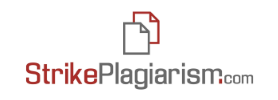Optimizing Material and Technology Selection for Cost-Effective Equipment Performance
DOI:
https://doi.org/10.15421/cims.4.287Keywords:
high-manganese steel, austenite, martensitic transformation, wear resistance, plastic deformationAbstract
Purpose. To optimize criteria for evaluating the implementation of wear-resistant materials to reduce production costs and equipment downtime. Design / Method / Approach. The study employed an analytical review of publications, spectral and metallographic analysis of alloys, a gravimetric method for assessing wear resistance, and heat treatment to enhance it. Findings. An analysis of challenges in developing materials for mining, metallurgical, and construction equipment was conducted. It was established that component service life must align with equipment maintenance schedules. New materials with enhanced wear resistance may be economically unviable due to high costs or inability to realize durability benefits. A balance between cost and service life is achieved by analyzing operating conditions and defining material and technology requirements. Theoretical Implications. The study expands knowledge on reducing production costs by identifying criteria for the effective implementation of materials and technologies. Practical Implications. A multi-criteria analysis is proposed for adopting new materials and technologies in the production of components for mining, metallurgical, and construction equipment, reducing costs and downtime. Originality / Value. The methodology uniquely optimizes material selection by aligning component durability with maintenance schedules, minimizing downtime. Its innovative alloy development resolves conflicting material requirements, enhancing production efficiency. Research Limitations / Future Research. Limitations include a focus on specific materials; future research should explore a broader range of materials and conditions. Article Type. Empirical.
Downloads
References
Bhadauria, N., Pandey, S., & Pandey, P. M. (2020). Wear and enhancement of wear resistance – A review. Materials Today: Proceedings, 26, 2986–2991. https://doi.org/10.1016/j.matpr.2020.02.616
Filippov, M. A., Belozerova, T. A., Blinov, V. M., Kostina, M. A., & Val’kov, E. V. (2006). Effect of heat treatment on the wear resistance of high-carbon and high-nitrogen steels subjected to abrasive wear. Metal Science and Heat Treatment, 48(3-4), 170–174. https://doi.org/10.1007/s11041-006-0064-4
Gan, Y. (2024). Research on the Innovative Development of New Materials Science and Technology in China. Engineering, 32, 10–13. https://doi.org/10.1016/j.eng.2023.03.022
García Gutiérrez, I., Pina, C., Tobajas, R., & Elduque, D. (2024). Incorporating composition into life cycle assessment of steel grades. Journal of Cleaner Production, 472, 143538. https://doi.org/10.1016/j.jclepro.2024.143538
Liao, X., Zheng, Z., Liu, T., Long, J., Wang, S., Zhang, H., & Zheng, K. (2024). Achieving high impact–abrasion–corrosion resistance of high–chromium wear–resistant steel via vanadium additions. Journal of Materials Research and Technology, 29, 2425–2436. https://doi.org/10.1016/j.jmrt.2024.02.015
Lozinko, A., Gholizadeh, R., Zhang, Y., Klement, U., Tsuji, N., Mishin, O. V., & Guo, S. (2022). Evolution of microstructure and mechanical properties during annealing of heavily rolled AlCoCrFeNi2.1 eutectic high-entropy alloy. Materials Science and Engineering: A, 833, 142558. https://doi.org/10.1016/j.msea.2021.142558
Netrebko, V. V., & Volchok, I. P. (2020). Improving the corrosion resistance of the high-chromium cast irons [In Ukrainian]. In XV international conference "problems of corrosion and corrosion protection of structural materials" (pp. 182–188). G. V. Karpenko Physical-Mechanical Institute. https://www.ipm.lviv.ua/corrosion2020/Chapter_02/XIII_182_NETREBKO.pdf
Netrebko, V. V., Volchok, I. P., Popov, S. M., & Akimov, I. V. (2022). Specific Features of the Fracture of High-Chromium Cast Irons Under Abrasive Wear. Materials Science, 57(4), 439–445. https://doi.org/10.1007/s11003-022-00563-4
Ning, Y., Qiu, Z., Wu, B., Pan, Z., & Li, H. (2025). Hardfacing of metals: A review of consumables, properties and strengthening processes. Journal of Materials Research and Technology, 36, 6330–6349. https://doi.org/10.1016/j.jmrt.2025.04.221
Shalomeev, V. A., & Liutova, O. V. (2022). Economically alloyed steel for the needs of the mining industry [In Ukrainian]. Metal science & treatment of metals, 101(1), 44–52. https://doi.org/10.15407/mom2022.01.044
SSC of Ukraine. (2023). Economic Indicators of Industrial Sectors. State Statistics Service of Ukraine. https://ukrstat.gov.ua/
Tkachenko, A., Kruhlikova, V., & Yukhno, V. (2020). The methodological approach to the determination of technical and economic efficiency of wear-resistant deposition [In Ukrainian]. State and Regions, Series: Economics and Business, 3(114). https://doi.org/10.32840/1814-1161/2020-3-46
Xu, L., Wang, F., Li, M., Li, F., Wang, X., Jiang, T., Deng, X., & Wei, S. (2023). Fabrication and abrasive wear property of high chromium cast iron with high vanadium and high nitrogen content (HCCI-VN). Wear, 523, 204828. https://doi.org/10.1016/j.wear.2023.2048287
Zawischa, M., Bin Mohamad Supian, M. M. A., Makowski, S., Schaller, F., & Weihnacht, V. (2021). Generalized approach of scratch adhesion testing and failure classification for hard coatings using the concept of relative area of delamination and properly scaled indenters. Surface and Coatings Technology, 415, 127118. https://doi.org/10.1016/j.surfcoat.2021.127118
Downloads
Published
Versions
- 2025-06-24 (2)
- 2025-05-29 (1)
Issue
Section
Categories
License
Copyright (c) 2025 Valerii Netrebko, Vadym Shalomieiev, Serhii Sheiko, Olexandr Shapurov, Oleksii Hrechanyi, Valentyna Tretiak (Author)

This work is licensed under a Creative Commons Attribution 4.0 International License.
All articles published in the journal Challenges and Issues of Modern Science are licensed under the Creative Commons Attribution 4.0 International (CC BY) license. This means that you are free to:
- Share, copy, and redistribute the article in any medium or format
- Adapt, remix, transform, and build upon the article
as long as you provide appropriate credit to the original work, include the authors' names, article title, journal name, and indicate that the work is licensed under CC BY. Any use of the material should not imply endorsement by the authors or the journal.



















